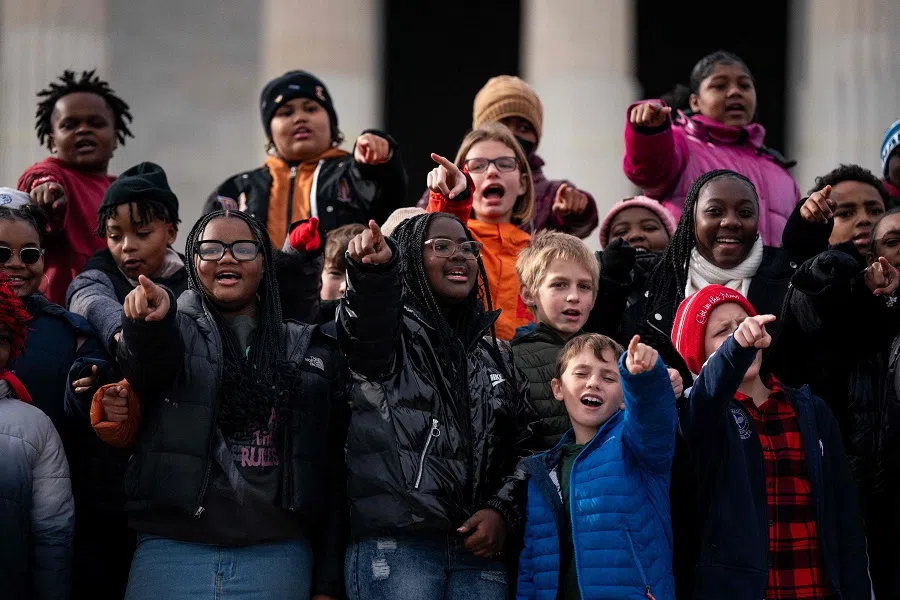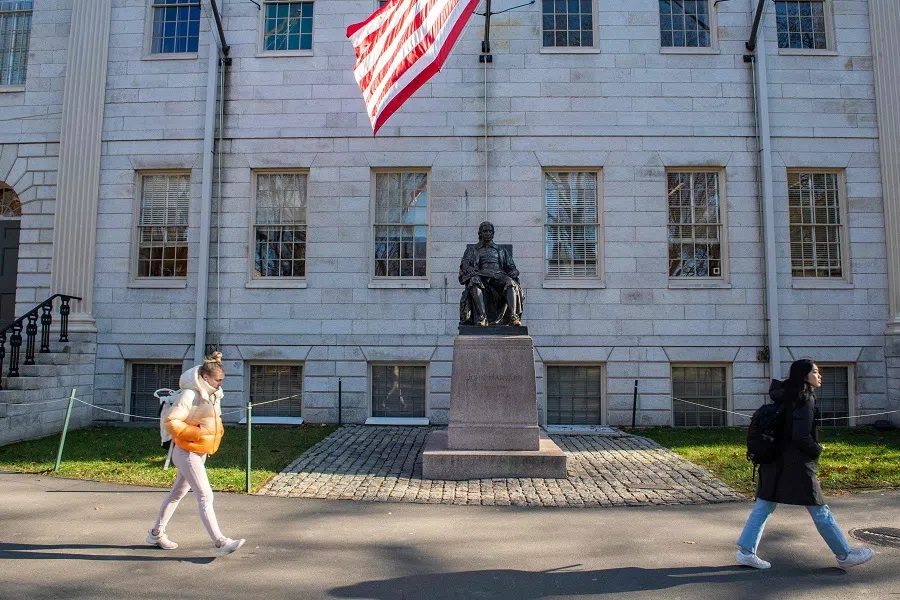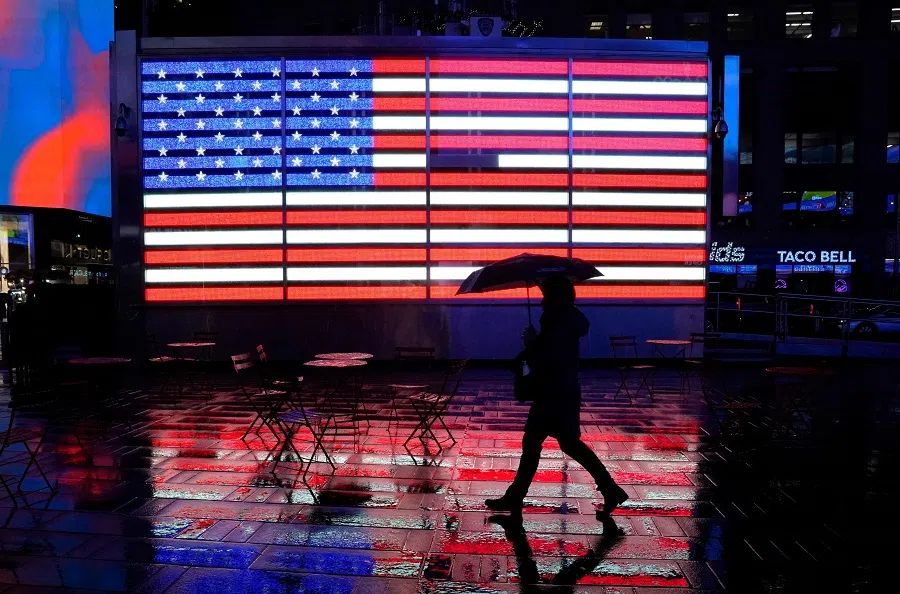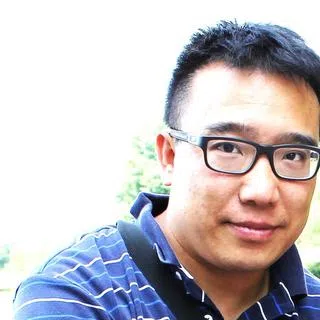US elite schools churning out 'perfect followers', not change makers?
Commentator Wu Guo notes how Ivy League schools in the US have churned out people who are academically brilliant, but unable to connect with real life or relate to real issues around them. Such indifference is symptomatic of US elites from top backgrounds.

There have been many discussions about the baizuo (白左, lit. white left, a derogatory term used on the Chinese internet to refer to those with Western leftist ideologies) in online Mandarin circles, in which I have previously participated. Generally, I feel that American left-wing progressive ideas have a positive impact on spurring society to be more inclusive and diverse.
From a personal standpoint, we might not truly like cross-dressing or transsexuals, and would not personally say that we belong to nth genders. But if we look at it from a principle of individual freedom, we must admit that as long as those with such leanings do not harm or impinge on the interests of others, these people have a right to pursue their true selves, and their right to do so should be protected. Society can most certainly carve out a tolerant space for them, and it is still admirable that people are fighting for these rights.
... elite higher education in the US has mass-produced a group of "perfect followers", who are afraid to resist or to question, and who are numb and heartless.
What about the 'perfect followers'?
In fact, apart from American high schools being fertile ground for producing baizuo, I am more concerned about another phenomenon in these high schools which has been astutely explored by US academic and former Yale professor William Deresiewicz in his book, Excellent Sheep.
The book sheds light on how students educated at the top schools in the US are often emotionally tense due to intense competition, are extremely self-serving, lack personality, are content to go along with the flow, and do not engage in true self-reflection, critical judgement or exploration.
The Mandarin translation of this book already received much attention in Chinese reading circles and the education sector roughly ten years ago, with some reflecting that it could serve as a caution for Chinese parents who worship Ivy League education. Beneath its halo of excellence, a prestigious school could still mass produce blurry-faced individuals with a strong herd mentality and little critical thinking.
I must say, if the baizuo - putting aside their ideological leanings - can commit to taking action to spur societal improvement or change, at least raising attention on a certain issue, it could still be considered some form of concrete contribution, which would make their rebellious and critical nature seem somewhat charming.
But the problem is that elite higher education in the US has mass-produced a group of "perfect followers", who are afraid to resist or to question, and who are numb and heartless. And these people usually carry the genes of what Chinese academic Qian Liqun called "exquisite self-interest", when describing modern Chinese university students. This image might not be in line with the mental image many Chinese have of Americans, but it is a fact.
Examinations taking centre stage
This could be linked to America's education system as well as its social conditions.
Firstly, even today, brand-name colleges in the US emphasise a high score for entry - even though there are more diverse ways to get accepted into a school, and there is more emphasis on a student's community involvement and uniqueness as compared to China, good grades (including grades from high school GPA, as well as the SAT/ACT score needed for admission) remain an important selection tool.
Almost all of the best schools in the US would highlight the general grades of their students, showing that it is hard to substitute grades as a means of assessing the intelligence and potential of a student.
This means that students who enter elite colleges and successfully graduate from them are mostly "exam-smart" individuals.

High school education in the US is relatively diverse, and private boarding high schools are focused on developing students for admission into brand-name schools. Students of such schools have to focus on doing a lot of preparatory work for admission into elite schools.
On the other hand, in regular public high schools, the purpose of teaching is to provide some basic knowledge as part of compulsory education, and many of the subjects are unrelated to the content of college entrance exams. Other than registering students and providing a testing location, these schools offer no assistance with exam preparation.
Hence, students of public high schools who want to pursue college entrance exams instead of vocational training would need to "brush up" their exam skills by self-study or by attending paid tuition classes. This means that students who enter elite colleges and successfully graduate from them are mostly "exam-smart" individuals.
Among doctorate holders in humanities and college professors in the US, almost none of them come from a working-class family, much less from the bottom of society.
Even when students get into college, there is no end to examinations.
College GPAs affect future scholarships and job prospects, which is why students also value it. Under such intense competition, with competition generally based on grades, it is easy to cultivate good students who are constantly striving for perfect grades. These students would be labelled "five-points sheep" during Mao Zedong's time (five points being full marks in the Soviet Union), "excellent sheep" by American academics, or those with selfish "exquisite self-interest" by Qian.
Besides these similarities between China and the US - intense competition, a focus on university rankings, emphasis on admission test scores, ultimately creating a value system that is centred on top grades and high rankings - there is one difference between the US and China in terms of the individuals' societal backgrounds.
Among doctorate holders in humanities and college professors in the US, almost none of them come from a working-class family, much less from the bottom of society.
Comparing elite educators from US and China
US colleges do sometimes try to balance education resources by intentionally admitting students from average families so that "first-generation college students" whose parents do not have college degrees have a chance at higher education. However, the exorbitant school fees, high cost of living, the pressure of having to pay back a student loan, as well as career ambitions meant that most students from average families would enter the workforce upon graduation.
For those white Americans who go straight from their undergraduate studies to finishing their doctoral studies - without any experience with society - and end up with a teaching position in colleges, most of them come from middle-class and above families, or are children of parents who themselves are professors, continuing their parents' teaching and research career.
... quite a number of professors in China's universities come from average or even bottom-tier agricultural families.
Yet, from my experience visiting schools in China, my daily exchanges and what I glean from following several academic-related social media accounts, quite a number of professors in China's universities come from average or even bottom-tier agricultural families.
Many have experienced and know well what life is like for the bottom rung of society, the hardships farmers face, and what a labourer goes through. Some university teachers would also dive deep into studying students' circumstances from the angle of social phenomena and personal destiny, often becoming emotionally invested.

In comparison, certain humanities academics in the US take an approach that is divested of reality and emotions, and engage in mental games exclusive to those who belong to the middle-to-upper class, who do not have to worry about putting food on the table or clothes on their back.
It is hard for children of such elite families, raised under elite education and an over-protective environment, not to become "perfect followers"...
When I read that a female US professor in anthropology had to use funds to conduct "field research" in order to come to the commonsense conclusion that "those at the bottom lead a tough life", I just feel there is a side to American academics that is quite out of touch with reality. There is more than one female professor around me who has zero societal experience outside of the school, whose parents even bought the houses they live in just for them.
It is hard for children of such elite families, raised under elite education and an over-protective environment, not to become "perfect followers", because they lack the depth of life experience to confront and attempt to respond to many of life's complicated questions.
They do not delve deep into analysis and explanation of the root of issues, and cannot propose a useful or innovative solution, much less dare to challenge current solutions and authority.
'Exquisite self-interest' on display
Once, the administration in my school cited data that showed a relatively high proportion of African-American and Hispanic students who dropped out of school and wanted to discuss how to retain them. At the regular faculty meeting, my white American colleagues with doctorates from brand-name schools like Harvard, Columbia, Stanford and so on, all hemmed and hawed with indifference. The discussion led nowhere and the meeting moved on to the next item on the agenda that was easier to discuss.
I felt clearly that when it comes to real issues of social significance, and not about organising dinner parties, signing greeting cards, or the amount of extra funding from forum participation, these "excellent sheep" all lose their voice.
Perhaps they do not care why African-American and Hispanic students drop out of school, or have no interest in thinking about how to retain them, and do not like thinking about the change in gender proportion of college students in the US - that is, females outnumbering males - or how undergraduate dissertations for the history department are overly focused on American history, and so on.
At other times, any vote is passed unanimously, and there is no dispute in discussing any issue because everyone is used to going along with the crowd and going through the motions.
Perhaps the numbness and indifference marked by "exquisite self-interest" is a more frightening prospect than the naivety and recklessness of the baizuo.

On the countless occasions that this occurs, I think that if being baizuo means you think deeply and offer your take on societal issues like "why dropout rates of White students are low while that of others are high?" and engage in its debate, it could at least demonstrate the idealistic passion and thinking of the "intellectuals", but sadly, I have never seen this. Perhaps the numbness and indifference marked by "exquisite self-interest" is a more frightening prospect than the naivety and recklessness of the baizuo.
Where are the change makers?
It is precisely due to this inability to think that has resulted in my American colleagues - who have been educated in elite institutions their entire lives, and have never ventured beyond the school gates - staying within their lanes, mechanically completing routine work assigned to them by the school and listing down statistical data.
They are unable to deeply analyse key problems in curriculum design, graduation criteria, dissertation topics, teaching workload, or the alignment of academic training with employment needs. Helpless in proposing plans to effect changes, they had to heavily cite this "foreigner's" suggestions in their end-of-year work report, following my research into the matter. They are indeed "excellent sheep" with their austere exterior reflecting numbness and indifference.
... among the 2023 Fortune 100 CEOs, only 11.8% attended an Ivy League school as an undergraduate, and a mere 9.8% hold an Ivy League MBA...
Interestingly, in my school, all of the major reform proposals, bold ideas and actions taken to effect positive change, come from those among the leadership without an Ivy League background.
My observations of the microenvironment seem to fit the research of the present macroenvironment: among the 2023 Fortune 100 CEOs, only 11.8% attended an Ivy League school as an undergraduate, and a mere 9.8% hold an Ivy League MBA, while statistics from 2020 showed that eight out of the top ten CEOS among Fortune 100 companies attended public colleges.
Another fact is that though a degree from a brand-name school is a huge advantage during a job hunt, after 10 or 20 years, no one in the workplace or the industry would take into account a person's alma mater, and instead would assess their actual ability, contributions and value.
It is of course not my intention to belittle the prestige of Ivy League schools, or the fact that they have produced a large number of excellent academics. Of course, there is a difference between proposing a new perspective in an academic paper and proposing a brand-new solution in real life.
If average parents want their children to truly become bold innovative talents, who can consistently push for changes in businesses and society, and who have a vision for the future, there should be attention given to how elite American schools also breed "exquisite" but numb "perfect followers", instead of change makers.





